Tsiba Report
EDUCATION AND LIBERATION When we arrived at the June 16th Celebrations, it felt like we had stepped back into 1976 Sharpeville riots. This is true; when one considers that you are standing next to Antoinette Sithole, Hector Peterson’s sister. We find out that Hector Peterson’s traditional Xhosa name was Zolani. She told us about the day her brother was shot .She encouraged us to live a fulfilling life and to get educated because “…without education you are nothing.”
Antoinette also told us about the incorrect manner in which the nation is celebrating Youth Day/June 16. “It’s as if people are celebrating my brother’s death. It was inspiring as she explained that one’s background does not determine your future when it comes to education, especially with endless financial possibilities, like bursaries which are available. An interesting part of our day was when parents and children conversed in a quiz. One of the questions which was posed was, how do you feel about education in this democratic era?
MANDELA DAY On the 13th of July, we celebrated Mandela Day. As part of the Tsiba Project, we had to choose a practical project which we would assist for 67 Minutes. As Masiphumelele representatives, we chose to clean the Muizenberg beach. We wrote a message to Madiba, wishing him a speedy recovery. Our facilitators arrives and took pictures of what we had done, after which we returned to Tsiba. We were then addressed by a speaker who told us about how his grandmother taught him to achieve the seemingly impossible. For example, in the old days, women were not allowed to become lawyers. He notably also informed us that, without energy, a human being cannot function. We had a brilliant day!

August is a special month for all women in South Africa as we all celebrate Women’s Day on the 9th of August of every year. ABI together with Joan Madibeng, a South African business woman and media personality, invited 10 of their mentee’s from IkamvaYouth Ebony Park to attend a very special occasion to celebrate all women on the 24th of August 2013. This event was titled, ” Women – The Real Architects of Society, ” and was aimed at providing attendees with some insights into the world and also provide guidance for them as they mature into women-hood.
The event was packed with inspiring speakers, incredible performers, amazing food, spot prizes and fabulous goodie bags. There were many special guest speakers and these included Herman Mashaba, Thabiso Sikwane, Edith Venter, Dr. Michael Mol and Azania Mosaka. The learners really appreciated being given the opportunity to attend this event largely because ABI paid R10 000 for all the Ikamvanites to get a seat and enjoy the day.
Joan said, “It is key that women be given the tools for their upliftment and be given access to information relevant to all areas of their dynamic lifestyles. It was a wonderful privilege to host fellow Women, and inspire them in a small way”

The learners have pegged this to be a day that they will live to remember for the rest of their lives!
Thank you Joan and ABI!!!
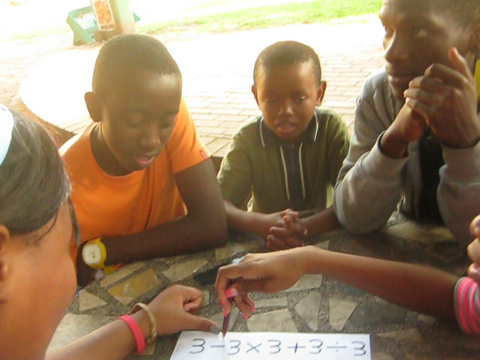
Winter School 2013 Week 1
Week 1 of Winter School 2013, all the preparations and hard work in the previous months have come down to this event. The Monday morning was a little hectic, with the bus service running slightly behind schedule for the Umlazi learners. By the time it hit 9 am, the team was already working hard to make sure everything goes as planned.
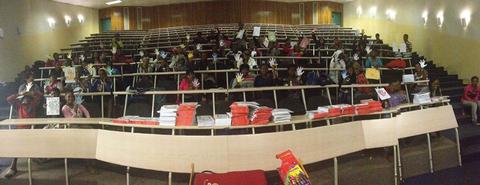
The venue for this year was DUT (Durban University of Technology, our kind sponsors), and once again the two KZN branches collaborated and held a joint Winter School, which resulted in having 220 learners and 50 volunteers.
The KZN Team designed the beautiful T-shirts to go with the theme for the KZN Winter School which was “my future is in my hands”. The idea behind it was to remind and reinforce to the learners that they are in the driver’s seat of their own futures. To go hand in hand with the theme a beautiful sketch was drawn by N’thabiseng Zwane from the Umlazi branch. It depicts the world, with various careers, being held by a pair of hands and the image is visual representation of the statement “my future is in my hands”.
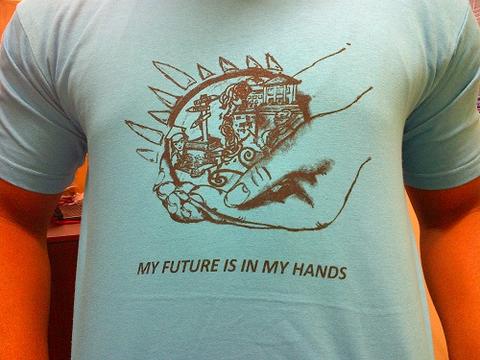
The winter school time table (Monday to Thursday) was structured in such a way that mornings would consist of academic tutoring, and the afternoons reserved for activities such as life skills workshops and talks, exercise sessions, and MIE activities and the first Friday was reserved for excursions for all the grades.
One of the first creative activities that were done by the learners was a session encouraging them to reflect on what our winter school theme (My Future is in My Hands) means to them. All the learners had to make “hands” out of paper that represent what the slogan means to them. Some of the learners really put their heart and soul into the creative session. Learners were offered the opportunity to share what they had created with their groups.

We were also graced by the presence of World Changers Academy to speak to the grade 10 and grade 11 learners. The talks were revolved around motivation and letting the learners know that anything is possible and they should never feel like they can’t succeed in life. This is very important as learners are exposed to a lot of negativity in the township on a daily basis.
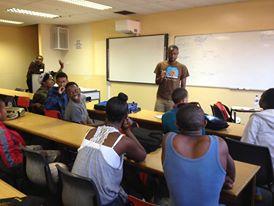
While we had WCA to motivate the learners and make sure they stay forever hopeful and know they will succeed, we also had people from NICRO talk to the learners about the work they do. NICRO is an organisation that diverts offenders who have committed minor crimes (eg. Minor shop-lifting) from prison to community service and similar activities. The importance of understanding that anyone can commit an offence (sometimes not intentionally) and end up on the wrong side of the law is what this organisation stresses. Gugu Ximba, who works as a drug counselor at the Vuyani Nkosi Youth Centre, where the Chesterville branch is based, presented a drug awareness talk to the learners. She took the learners through a list of common drugs, their side effects and why the learners should stay away from them.
During week one, we also had a visit from the Love life mpintshis., who insisted that all staff and volunteers leave the room as they talk strictly to learners. The purpose of this is to help the learners feel free and comfortable enough to talk about the issues they cover. These range from sexuality to abuse.

DUT was able to come on board even more through their Department of Food and Nutrition. The department was able to send one of their staff members to give the learners a talk on the importance of a balanced diet, how to achieve it and what are some of the consequences of not eating well. They also sponsored each leaner with a tin of cook-in evaporated milk. The talks were spaced over four days. Two days in the first week and two days in the second week.
With most of the activities requiring the learners to pay attention and listen carefully, we needed some activities that they could actively (physically) participate in as well. In the first week all the grades had an opportunity to go to the grounds to exercise after lunch. They were accompanied by an independent fitness trainer who was there to make sure they were participating and doing everything properly. They looked forward to it, especially since they would get a chance to do something different not just sitting in the classrooms.

The one activity that got all the learners very excited was the Amazing Race. We decided to create our own small version of this fun race around the campus. All four grades got to participate in the race at different times. The grade 9s and 12s were the first group. The race included a health quiz, picture puzzle, shooting hoops and solving Maths puzzles.
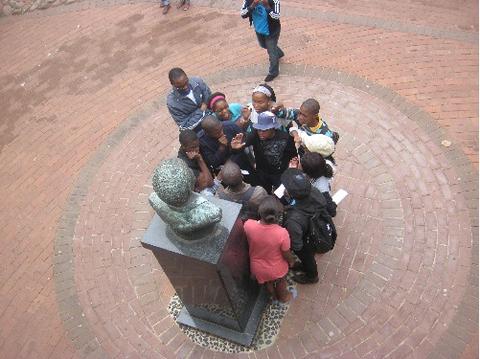
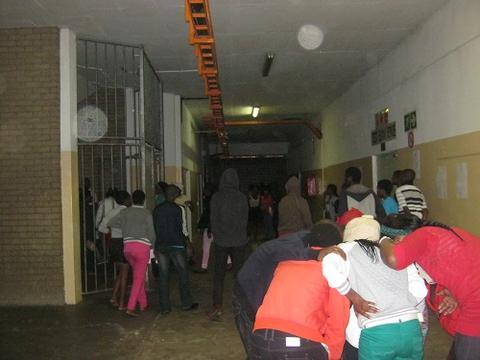

The week ended with excursions for all the learners. The grade 9 and 12 ventured off to the UKZN Science and Technology Centre, while the Grade 10 and 11 went to the Durban Green Corridor Estuary.
The Grade 9 and 12 learners were taken on a tour of the Science centre and also witnessed some of the experiments that take place at the centre. The grade 9 learners also got a chance to see the microscopes up close. The matric group also got to do a learning styles workshop. The workshop allows participants to determine their learning styles. This allows a person to better understand how they make decisions and also how they interpret the world. It is a true eye-opener for anyone who has ever wondered why and how they do certain things different to other people.
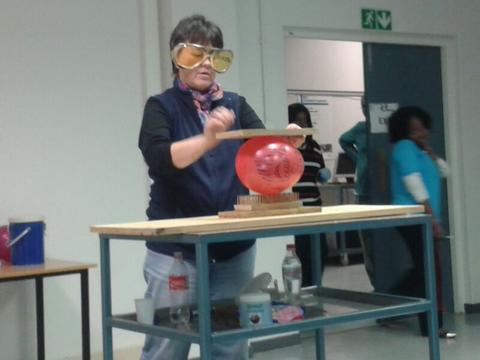
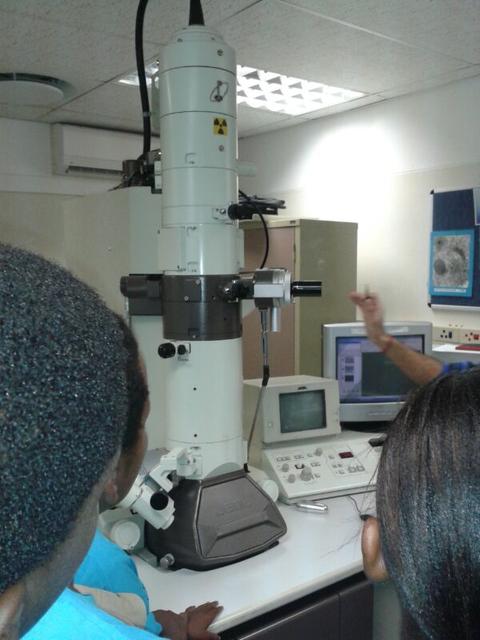
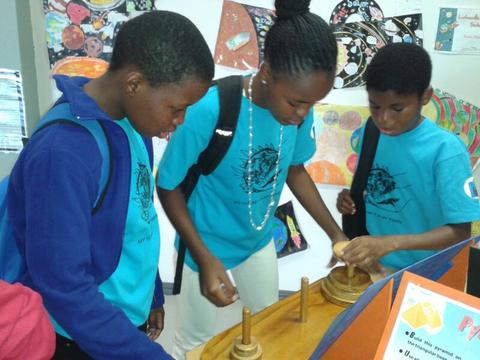
At the Green Corridor Estuary the grade 10 and 11 group did a beach clean-up. They also got a chance to see the famed Mangroves of Durban and learn all about them.
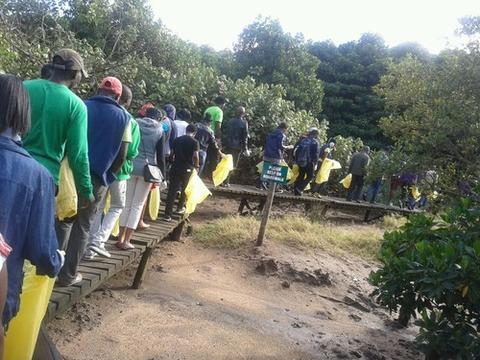
All in all the first week was an exciting and great learning curve for the team.
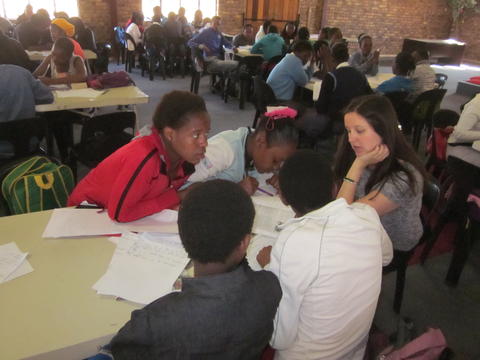
Five years ago, I found IkamvaYouth by chance and had the opportunity to work with amazing people at the Western Cape’s Winter School. This year, I came back to Ikamva on purpose. I am PhD student from the US, researching democracy and citizenship education in South Africa. I knew I had to do so some preliminary research in SA, so I made sure to schedule my visit during the Winter School. This time, I came to Gauteng, but once again I was welcomed warmly and put straight to work, developing lessons, tutoring and recruiting learners for an afternoon stream, the Peacebuilders’ Club.
Before I arrived, I prepared several English fundamentals lessons and was nervous that they would be too easy, too hard or just too American. With the help of the Ikamva staff and feedback from tutors, I was able to adjust and witness some moments of real learning. No matter where you are, introducing a little controversy and debate can help to engage learners. Between family relations, the death penalty and President Obama’s meeting with President Zuma, there was plenty to talk about. Tutoring at this year’s Gauteng Winter School was a rewarding and eye opening experience. From Romeo & Juliet and human anatomy to the French Revolution and layers of the atmosphere, I was constantly trying to keep up with the brilliant learners of Ebony and Ivory Park. More than once I had to double check my facts and ask more in-depth questions to challenge the motivated learners. I had to avoid the maths’ lessons altogether because they were over my head!

I was also able to help a fantastic group of learners form a Peacebuilders’ Club. I have worked with the US Institute of Peace for several years and they have developed a great serious of activities and lessons on peacebuilding and conflict resolution for secondary school students. All I had to do was bring these activities along and the learners quickly took over and became real peacebuilders and leaders. They did skits, created art and made goals for the future of the club. I want to say a huge thank you to the Peacebuilders’ Club for being so open-minded and motivated! On my last day with Ikamva, the whole group went to Freedom Park in Pretoria. This was an incredible experience for me, both as a visitor, and as a student of history and citizenship. It was moving to see the memorial to those who gave their lives in the struggle for freedom, and it was equally moving to see the tutors and learners participate in a dialog about the struggle and what it means to them.
This demonstration of active citizenship shows how IkamvaYouth not only helps learners to achieve in school, but also to participate in their communities and nation. I have been back in the US a week now, and I can only say a big thank you to the Gauteng staff, tutors and learners for an amazing time at the 2013 Winter School!
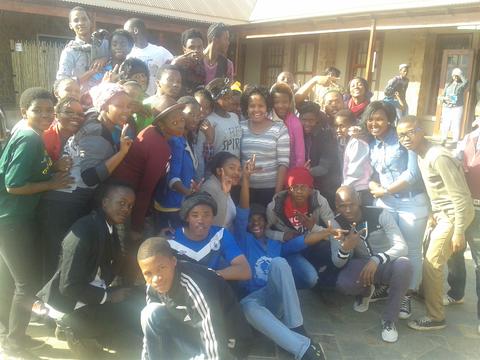

Ikageng Branch undertook an unforgettable adventure in one of our spectacular national parks, Pilanesberg National Park on the 28th June 2013. Ikamvanites gathered at 07h30 for 08h00 departure, everyone was beyond excited and slightly nervous to embark on this new adventure. It was an exceptionally warm winter day, despite road constructions and traffic, the excitement was booming in the busses. Enormous adventures awaited Ikamvanites as the journey led to Pilanesberg National Park.

From the moment we entered the Pilanesberg National Park’s gate, we surrendered ourselves to nature. We shared the space, at the same level, with all the animals and their powerful instincts. It was an exciting environment full of noises, smells, shadows and movements that warn of the presence of other inhabitants of the Park.
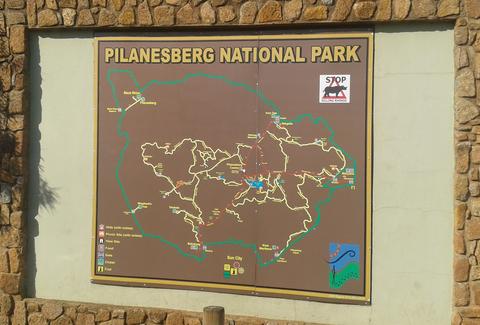
The unique habitat of the Pilanesberg National Park is home to a wide variety of wildlife, birdlife and plants with the Big five on top of our must see list. According to the official park guide, there are 50 species of large mammals over and above the Big Five: Lion, Elephant, Leopard, Buffalo and Rhino. He also indicated that there are 354 different bird species found here. There are also 65 reptile species, 18 different kinds of amphibians and thousands of other small animals.
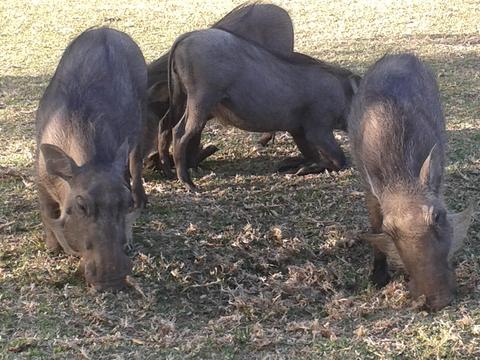
The most beautiful scenery within the entire park is viewed in the Mankwe Dam region. The dam is the largest body of water in the game reserve. This makes it the perfect place to spot a wide variety of animals; water-buck, wildebeest, zebra and impala are among the animals that make a stopover on the grassland bordering the dam.
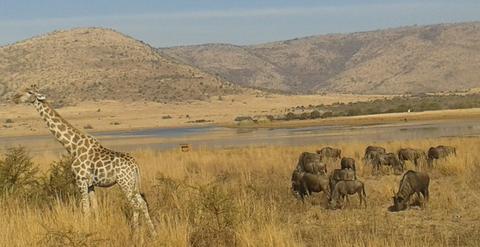
Nature looked stunningly beautiful; Mountains of all sorts and sizes stood high forming beautiful horizons where they touched the sky. Valleys and landscapes punctuated the beauty leaving learners wanting to learn and see more.
For most learners national geographic was but a fairy tale, only turned real as the game reserve gates opened up to viewing wild animals including “the big five” and learning about wildlife and environment. It was a lifetime adventure and experience adding much more pride and value to the love of education.
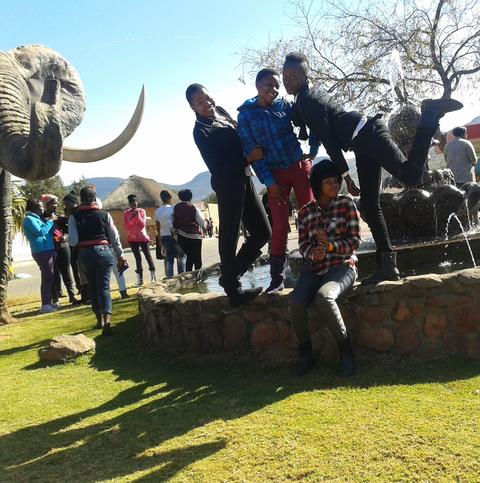
Indeed it was fun, adventures and learning at its best. ‘’A Day worth reckoning’’

Matrics in the Western Cape have taken Winter School to a whole new level by being the first group to participate in a Matric camp. An innovative part of IY’s annual Winter School holiday program, the Matric camp was launched in 2013 by the Western Cape team and has seen 62 Matrics from Makhaza, Masiphumelele and Nyanga get together for a week getaway at the Rotary Glencairn camp site, for 5 days of intensive tutoring, academic workshops and exam practice.

The first day saw all the learners arriving at the site and immediately getting into energetic team-building exercises led by Masi Branch Coordinator, Johnlyn. The exercises proved a worthy ice-breaker as learners started interacting more freely across the branches, and working collectively to earn points for their various teams, comprised of Matrics and volunteers from each branch.
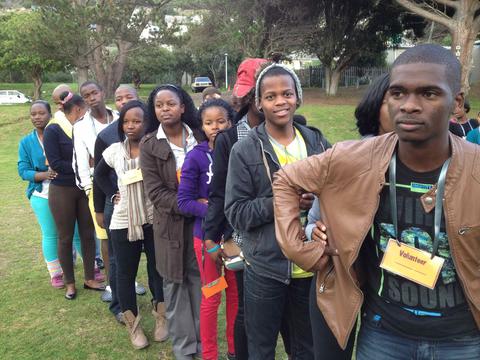
Johnlyn led the group in a workshop on vision and goal-setting, where she spoke frankly about being in Grade 12, the imminence of exams and what it takes to reach goals and achieve desired results. The session was an inspiring one for many learners, and Yonela Jongilanga from Nyanga branch had the following to say: ‘This is different from the other camps I have attended. I like it because the focus is about being serious.’ Tutoring started in earnest and learners spent the rest of the afternoon working on their schoolwork.
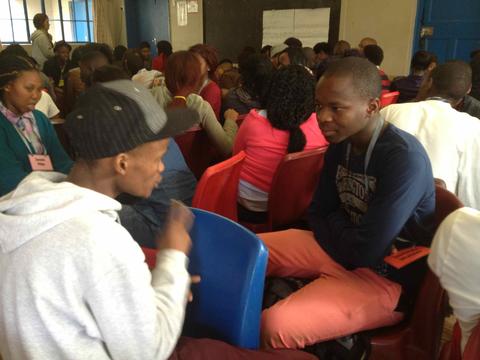
Makhaza Coordinator, Zukile took the learners through a valuable workshop on how to calculate their aggregates and types of passes they are currently receiving in their school reports, for the purposes of tertiary studies. The session also covered the National Benchmarking Tests and their importance for accessing studies at certain universities in South Africa. The workshop ushered in a very sombre mood amongst the group, as learners realised the amount of work required of them, in order to access university. Nyanga Branch Assistant, Siphelele, then led the group into an energetic slogan, where learners re-stated their confidence in their ability to achieve their dreams. The evening wound down on an emotional note, as the group openly shared individual experiences and challenges individuals have experienced.
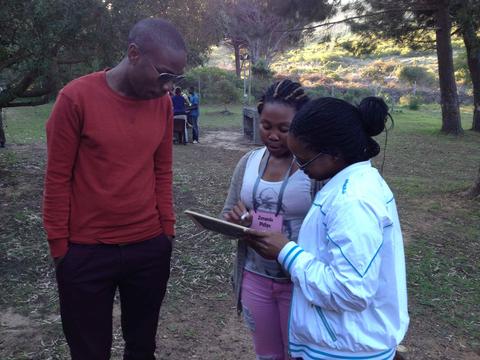
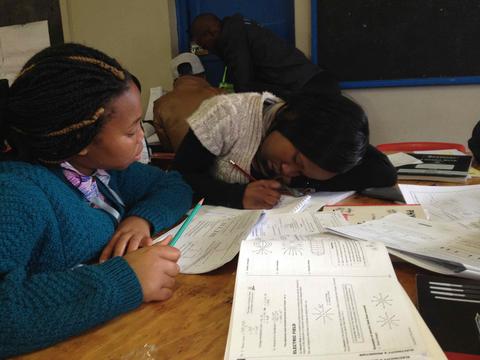
As the Matric camp continues, the learners have all managed to do take part in a variety of activities aimed at preparing them for their final exams and tertiary studies. On day 3 of the camp, the Matrics’ mentors joined the group for an afternoon session of tertiary applications and each learner applied to 5 tertiary institutions for study in 2014. Afikile Nkonyana said the following: ‘’I am glad I had people to help me with my applications. My first option for study is Chemical Engineering and I applied to Stellenbosch, NMMU, CPUT, Wits and TSiBA and I hope I will get a place at one of them for next year.’’ Later that evening, the learners went on a trust hike up the mountain, which is one of the activities that has enriched the learners’ overall experience whilst on the camp. Luyanda Jaranda from Makhaza branch said the following: ‘As we have bonded, it has become quite easy to be tutored together and we have become so relaxed and free during the sessions.’
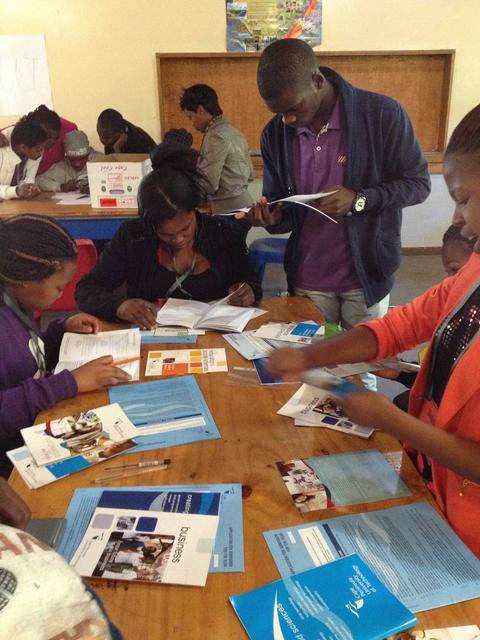
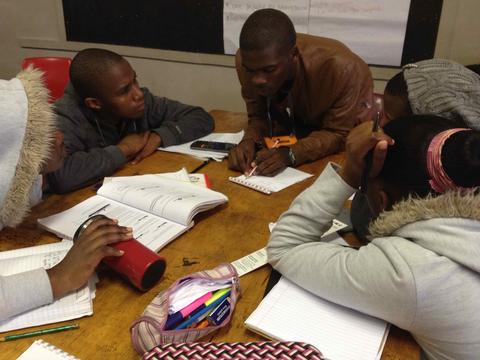
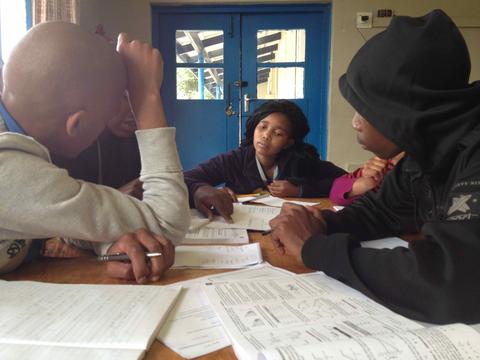
On the last full day of camp, the learners started the day with a workshop on writing amazing applications. For young people who are on the verge of exiting the school system and entering tertiary education and employment, this workshop came at the right time. Many of the learners are interested in accessing bursaries and other sponsorship for their studies and were very enthusiastic about a workshop that addresses writing to potential funders and employers.
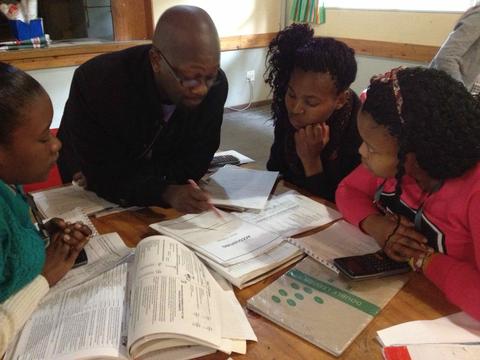
One of our Masi volunteers, Janna, ran a workshop on study guidelines, schedules and time-keeping, which is essential since the Matric exams are a month away. The group also got to enjoy a refreshing walk to the beach, where they had a fun afternoon playing games, swimming, chatting, doing photo-shoots and having lunch at the beach. After walking back, the learners were exhausted, but had enough energy to get ready for a Maths workshop, facilitated by SAAO.
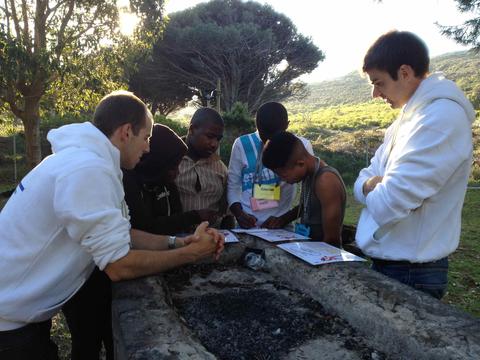
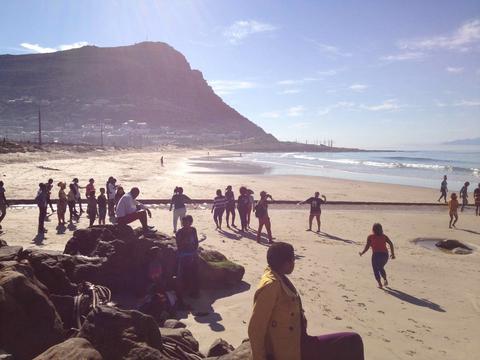
True to ikamvanite culture, the learners got into a rigorous tutoring session after the day’s many activities and spent a number of hours getting assistance in their school subjects from their tutors, who as usual were more than up to the task. Lindiwe Grootboom, a volunteer said the following: ‘I have found the camp very inspiring. I hear the stories from the learners and tutors and I am amazed by what they go through every day, and yet they are here, studying and working to make their lives better.’
Matric Camp has been a success so far, and Kuhle Riti from Makhaza said the following: ‘The camp is a success because we have got a chance to focus on our studies and help each other as Matrics from (the Western Cape). ‘’ This strongly echoes IY’s value of peer-to-peer sharing and IY is excited to witness the fruit of the Matric camp as the learners write their mock exams in September and final exams in November.
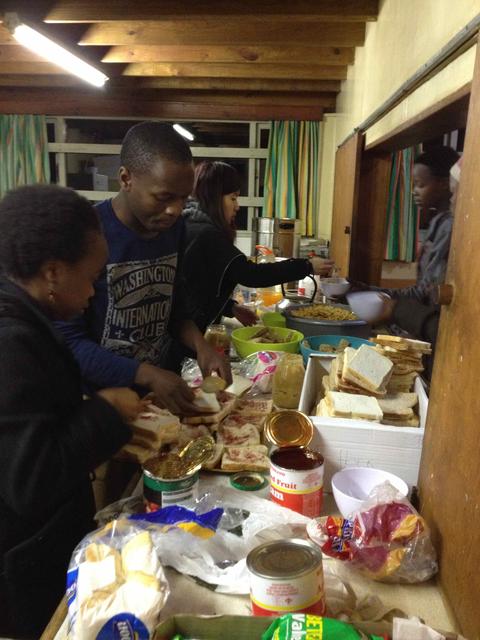
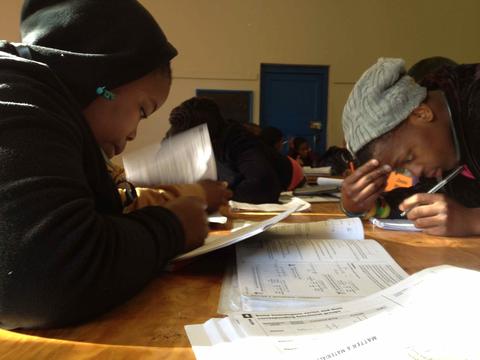
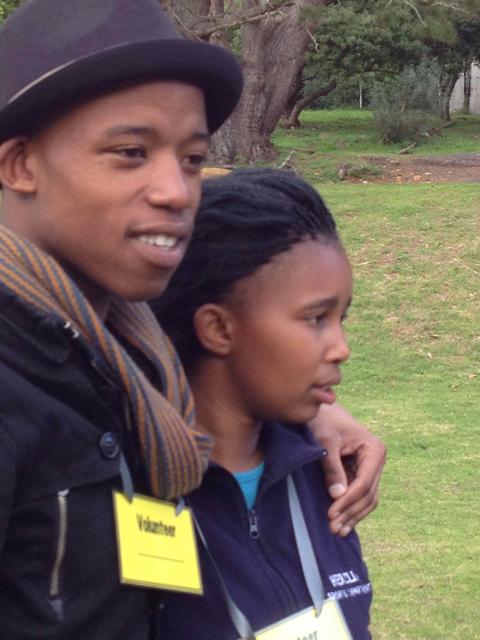
A very special thank you to Pick’n Pay Fish Hoek, for generously supplying camp catering, and ensuring that all our learners, volunteers and staff are well fed every day of the camp, as well as Rotary for the accomodation.
Matrics 2013 Yes we can!!!
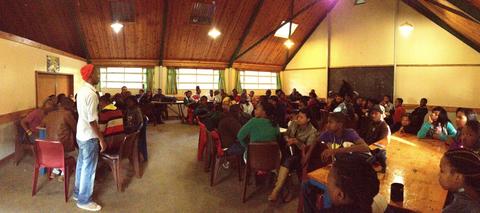






































 Lloyd Lungu
Lloyd Lungu